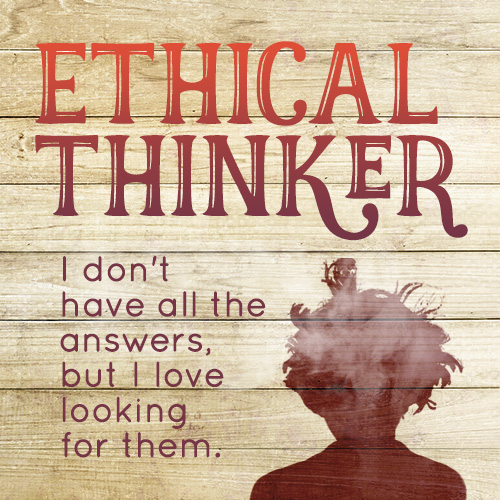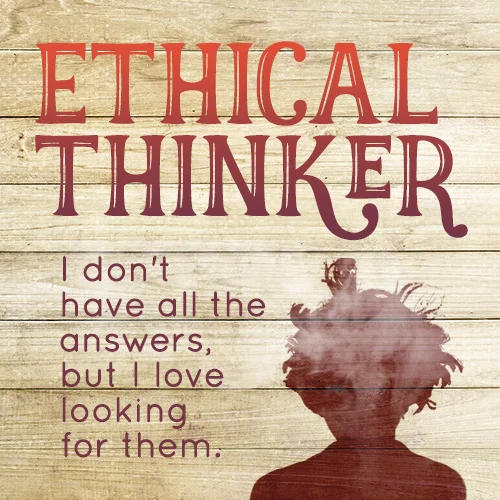The deadly combination of racism, gun culture and poorly trained cops
/Almost every day now, I see an outpouring of rage, grief and fear from my friends. That is because almost every day now, another young black man in America is shot to death by another white police officer. Many of these young black men are innocent yet executed on the spot for no reason. Others may be guilty of something, but we'll never be quite sure since they didn't get a trial. They were punished by spontaneous public execution instead of through a court of law.
1) In the interest of time, would ye noble patriots please provide a list of infractions punishable by spontaneous public execution? Thanks!
— jesseWilliams. (@iJesseWilliams) July 6, 2016
Why are so many young black men being killed by police officers in America? It is, unfortunately, a lethal combination of at least three elements. These elements are each dangerous and destructive on their own, but when combined create a situation where no young black male is safe in the United States.
Racism
A lot of countries have a racism problem, not just the United States. Police officers in other countries also use racial profiling, are more likely to stop or arrest a non-white person than a white person, and are known for police brutality. It could be argued that racism is different in the United States than it is in other countries, because of America's history of slavery, but racism certainly isn't just an American problem.
Police in countries like Germany, Canada and the United Kingdom have racism problems too.
More than 3,000 (UK) police officers are being investigated for alleged assault – with black and Asian people significantly more likely than white people to complain of police brutality, according to an Independent investigation. - Paul Gallagher, The Independent
Toronto residents learned that their police force had suspended its use of “carding,” the controversial practice of stopping and documenting people not suspected of any crime. The policy disproportionately targeted black people, who make up just over 8 percent of Toronto’s population but accounted for 27 percent of those carded in 2013. - Desmond Cole, The Walrus
The UN's Committee on the Elimination of Racial Discrimination had, once again, condemned Germany's record on dealing with institutional racism - particularly when it came to racial profiling by its police force. - Deutsche Welle
Racism is a problem that white people around the world need to address. We need to stop assuming that we and our friends are not racist. Instead we need to understand that everyone passes judgment and makes assumptions based on biases that we may or may not be aware of. Being able to recognize our own biases and call out our friends and family on their biases is a first step.
Police officers also need to be able to recognize their own biases and police forces need to actively address racism and racial bias in the force. Desmond Cole, an activist who has been carded more than 50 times by Toronto Police, told the National Post:
Every police officer in Canada should engage in ongoing anti-racism and anti-oppression training, and toss out the current euphemistic regime of ‘bias-free’ training,” he said in an email. “Police should have to take courses about the history and present reality of systemic racism in Canada, particularly towards indigenous and black individuals.
But racism alone doesn't lead to black men being shot to death by white police officers. Outside the United States, racism leads to unjust and discriminatory treatment of non-whites by police, but it doesn't nearly as often lead to their death.
Poorly Trained Police
Police are supposed serve and protect. Unfortunately, instead of being taught how to diffuse a situation and keep the peace, police in the United States are taught to shoot first and ask questions later (if at all).
Police recruits in Germany receive at least 130 weeks of training, while in the United States training is an average of 19 weeks. That means that German police officers have more than six times as much training as American police officers before they start their job.
But it isn't only the amount of training that differs, it is also the nature of the training. Over their three years of training, German police recruits spend a lot of time on role playing. Over and over again, they learn how to use proven tactics (not guns) to diffuse a difficult situation. German police recruits do learn to shoot a gun too, but their firearms course is specifically called "Don't shoot". They are learning how to use a gun, how to handle a gun, and how to avoid using a gun.
The Christian Science Monitor wrote about one example of the role play that is part of a German police officer's three year training:
The officer, alert but cautious, pounds on the suspect’s door. “Polizei!” he says forcefully, in his native German. A man thrusts open the door and walks out. His hands are at his side, but the policeman notices a gun tucked into the man’s belt. He pulls out his own firearm in response. He then moves briskly backward, coaxing the man to place his weapon on the ground.
The cop is commended for his actions.
The next officer up bangs on the same door. “Polizei!,” he says. This time the person walks out carrying a baton, not a gun. So the cop doesn’t pull out his pistol. He brandishes instead a can of pepper spray – a reflex response that also garners praise afterward.
Not only does any shooting of a police weapon in Germany (at a person or even an object) almost always result in preliminary proceedings being started by the prosecutor's office, but even taking a police gun out of its holster results in a ton of paperwork for the officer. Not only are they trained not to need their firearm in most cases, but they understand there are serious consequences and questions when you do take it out or use it.
In the United States, police training most heavily focuses on firearms skills, self-defense and health and fitness. It is all about the police officers protecting themselves, rather than about handling the situation effectively. In the training, officer safety is emphasized and every encounter is viewed as a treat. An article in the Atlantic describes a component of the training:
Officers aren’t just told about the risks they face. They are shown painfully vivid, heart-wrenching dash-cam footage of officers being beaten, disarmed, or gunned down after a moment of inattention or hesitation. They are told that the primary culprit isn’t the felon on the video, it is the officer’s lack of vigilance. And as they listen to the fallen officer’s last, desperate radio calls for help, every cop in the room is thinking exactly the same thing: “I won’t ever let that happen to me.” That’s the point of the training.
A common phrase, characteristic of this type of training apparently, is "Better to be judged by twelve than carried by six."
But how often does it even come down to being judged by twelve? Not that often.
Gun Culture
The United States has more guns per capita than any other country in the world. There are more guns than people in the United States, at a rate of 113 guns per 100 residents.
The United States also has far more homicides by firearm per capita than any other developing country. In the United States in 2012, there were 29.7 homicides by firearm per million people. Switzerland, which is the second highest country, had 7.7 homicides by firearm per million people. Most developing countries hover around one to five homicides by firearm per million.
White people are twice as likely to own a gun in the United States than non-whites and it is also white people who primarily fight against gun control. White people love their guns, but black people are disproportionately the victims of gun violence.
With guns being so pervasive in the United States, it is no wonder that poorly trained, scared, police officers assume people are always reaching for their guns. I'm not saying that this excuses any of the shootings, but I do think it is a contributing factor that is exacerbated by insufficient training on how to handle a situation where a gun may be present.
A deadly combination
Racism, gun culture and a poorly trained police force all contribute to the high rate of fatal shootings of young black men in the United States. The Guardian has compiled statistics and stories of people shot by police officers in the United States. In 2015, 1146 people were killed by police officers in the United States. That is a horrifically high number and everyone should be outraged that the police are killing so many people.
On a per capita basis, black Americans were 2.5 times more likely to be killed by a police officer as white Americans. As well, 25% of the black people killed were unarmed, compared with 17% of white people.
Explicitly or implicitly racist police officers with poor training in a country full of guns are going to pull their guns and shoot first. They haven't learned to confront their biases. They haven't learned how to diffuse a situation. They are scared of being shot first. They don't face consequences for pulling their weapon.
The "good cops" are being set up for failure. The "bad cops" are being enabled. This is unacceptable.
These words won't change anything
This morning as I thought about how deadly this combination is, I also remembered having posted about it before. Not in this length, not in this space, but this isn't something that just came to me now. I'm also not the only person who has recognized how these problems, individually or together, contribute to a horrific number of deaths of black Americans. People have written about this before. People with much bigger readership than I have and people with much more influence than I have.
We've increasingly become a "thoughts and prayers" and "shock and horror" society. We express our grief and we express our outrage. But the next day, nothing changes. The next day, it happens all over again.
The lack of action and solutions, even when the answers are apparent, is appalling and devastating.
#BLACKLIVESMATTER
Photo credit: All Nite IMAGES on FLICKR




